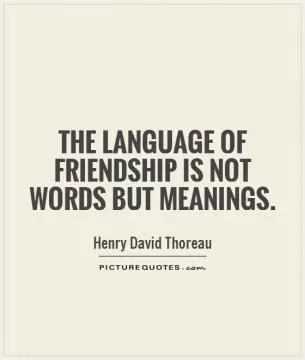There is more of good nature than of good sense at the bottom of most marriages

There is more of good nature than of good sense at the bottom of most marriages
Henry David Thoreau, the renowned American philosopher, poet, and essayist, was known for his profound insights into human nature and society. One of his most famous quotes, "There is more of good nature than of good sense at the bottom of most marriages," reflects his belief in the importance of emotional connection and compatibility in relationships.Thoreau believed that a successful marriage is not solely based on rationality or practical considerations, but rather on the deeper, more intangible qualities of good nature and emotional understanding. In his view, a strong bond between two individuals is built on mutual respect, empathy, and kindness, rather than on purely intellectual or material factors.
Thoreau's emphasis on good nature in marriages can be seen as a reflection of his broader philosophy of living in harmony with nature and the self. He believed that true happiness and fulfillment come from aligning oneself with the natural world and following one's innermost desires and instincts. In the context of marriage, this means prioritizing emotional connection and mutual understanding over societal expectations or external pressures.
Thoreau's view on the importance of good nature in marriages also speaks to his belief in the inherent goodness of human beings. He believed that at the core of every individual lies a wellspring of compassion, empathy, and love, which can form the basis of a strong and lasting relationship. By nurturing these qualities in oneself and in one's partner, Thoreau believed that couples could overcome any challenges or obstacles that come their way.
Overall, Thoreau's quote on marriages reflects his deep understanding of human nature and relationships. He reminds us that true love and connection are not based on logic or reason alone, but on the deeper, more profound qualities of good nature and emotional understanding. In a world that often values material success and external appearances, Thoreau's words serve as a powerful reminder of the importance of cultivating kindness, empathy, and love in our relationships.












 Friendship Quotes
Friendship Quotes Love Quotes
Love Quotes Life Quotes
Life Quotes Funny Quotes
Funny Quotes Motivational Quotes
Motivational Quotes Inspirational Quotes
Inspirational Quotes